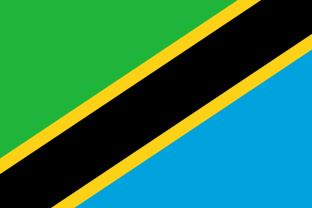Corruption in Tanzania
Both grand and petty corruption are serious problems in Tanzania yet various comprehensive laws are in place to prevent corruption. It is largely due to a weak internal control and low or non-compliance with anti-corruption regulations within different government agencies. For instance, public procurement, taxation, and customs service are areas that are prone to corruption.[1] Foreign companies have identified that corruption within those sectors poses potential obstacles for doing business in Tanzania as bribery is often demanded.[2] It is also believed that the existing large informal sector, amount 48.1% of GDP, is associated with cumbersome business registration process which have created opportunities for corruption.[3] President John Magufuli has launched a campaign against grand corruption and established a special court to handle the matter. As a result, corrupt officials have been fired and President Magufuli is working to instil a general sense of discipline in public service. These efforts and similar projects are internationally supported by Germany and the European Union. There are fears that such anti-corruption efforts will end when President Magufuli steps down [4].
| Political corruption | ||||||||||||
|---|---|---|---|---|---|---|---|---|---|---|---|---|
 | ||||||||||||
| Concepts | ||||||||||||
| Corruption by country | ||||||||||||
|
||||||||||||

References
- Corruption in Tanzania. Cambria Press. ISBN 978-1-62196-800-9.
- "Tanzania Corruption Profile". Business Anti-Corruption Portal. Archived from the original on 12 August 2016. Retrieved 14 July 2015.
- "Size and contribution of the informal sector". IPP Media. Retrieved 6 February 2014.
- Kilimwiko, Lawrence. "Civic competence contains corruption". D+C, development and cooperation.